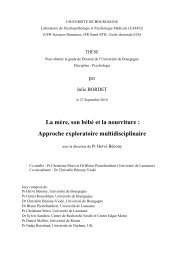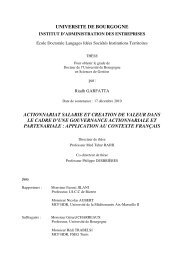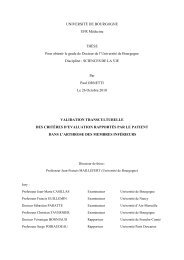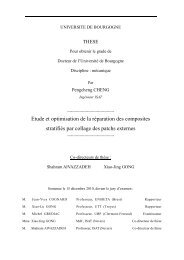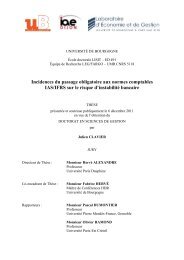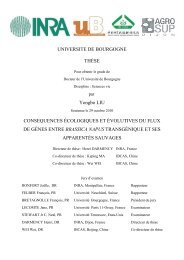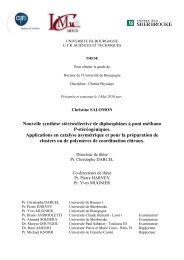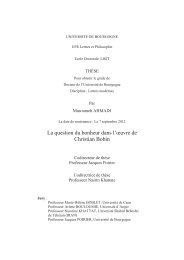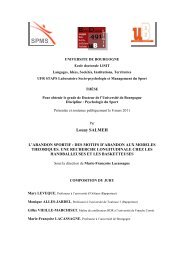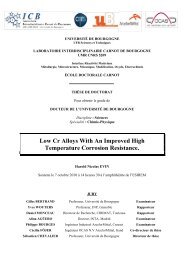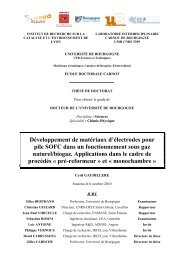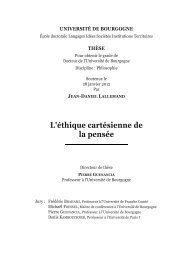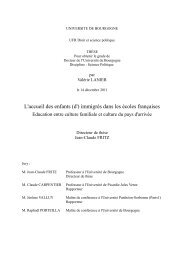Higher education in Asian countries and the role of international ...
Higher education in Asian countries and the role of international ...
Higher education in Asian countries and the role of international ...
Create successful ePaper yourself
Turn your PDF publications into a flip-book with our unique Google optimized e-Paper software.
43<br />
(1988) “<strong>in</strong>stitutions are described by neoliberals as persistent <strong>and</strong> connected sets <strong>of</strong> rules (formal<br />
or <strong>in</strong>formal) that prescribe behavioral <strong>role</strong>s, constra<strong>in</strong> activity, <strong>and</strong> shape expectations.”<br />
3.4.5 O<strong>the</strong>r schools<br />
There are many o<strong>the</strong>r schools also, which can be helpful <strong>in</strong> underst<strong>and</strong><strong>in</strong>g <strong>the</strong> formation, function<br />
<strong>and</strong> behavior <strong>of</strong> <strong>in</strong>tergovernmental organizations.<br />
3.4.5.1 Cognitivism<br />
Cognitivism ma<strong>in</strong>ta<strong>in</strong>s that <strong>in</strong>stitutions are <strong>the</strong> product <strong>of</strong> human m<strong>in</strong>d <strong>and</strong> it is bra<strong>in</strong> based<br />
development ra<strong>the</strong>r than response to environment as ma<strong>in</strong>ta<strong>in</strong>ed by behaviorism. Basically<br />
cognitivism is an approach <strong>in</strong> underst<strong>and</strong><strong>in</strong>g <strong>and</strong> expla<strong>in</strong><strong>in</strong>g <strong>the</strong> function <strong>of</strong> <strong>in</strong>stitutions through<br />
<strong>the</strong> study <strong>of</strong> m<strong>in</strong>d <strong>of</strong> men who are <strong>the</strong> creator <strong>of</strong> whole <strong>in</strong>ternational political system <strong>in</strong>clud<strong>in</strong>g<br />
IGOs. Cognitivism does not refute behaviorism <strong>the</strong>ory completely but ra<strong>the</strong>r an expansion by<br />
accept<strong>in</strong>g that mental states exist. Cognitivism encompasses all forms <strong>of</strong> realism, <strong>and</strong> as well as<br />
anti-realism. This doctr<strong>in</strong>e became a dom<strong>in</strong>ant force <strong>in</strong> <strong>the</strong> late-20th century. Cognitivists expla<strong>in</strong><br />
<strong>the</strong> existence <strong>of</strong> IGOs by hold<strong>in</strong>g <strong>the</strong> premise that actors‟ behavior is not completely shaped by<br />
only material <strong>in</strong>terests but by <strong>the</strong> <strong>role</strong> that <strong>the</strong>y play at national <strong>and</strong> <strong>in</strong>ternational level. So <strong>the</strong><br />
past experience <strong>of</strong> actors plays an important <strong>role</strong> <strong>in</strong> def<strong>in</strong><strong>in</strong>g <strong>the</strong> nature <strong>of</strong> IGOs. Cognitivists<br />
typically try to support <strong>the</strong>ir position by seek<strong>in</strong>g out analogies between moral discourse, on <strong>the</strong><br />
one h<strong>and</strong>, <strong>and</strong> scientific <strong>and</strong> everyday factual discourse, on <strong>the</strong> o<strong>the</strong>r (Britannica Concise<br />
Encyclopedia, 2011). Likewise <strong>the</strong> study <strong>of</strong> IGOs is <strong>in</strong>complete without tak<strong>in</strong>g <strong>in</strong>to account <strong>the</strong><br />
<strong>in</strong>ter-subjectivity: IGOs have deep roots <strong>in</strong> <strong>the</strong> <strong>in</strong>ternational social structure <strong>and</strong> are responsive to<br />
change but based on rationality <strong>and</strong> morality.<br />
3.4.5.2 Transnationalism<br />
The word Trans-nationalism was co<strong>in</strong>ed by R.S. Bourne (1884-1918), it describes ever<br />
<strong>in</strong>creas<strong>in</strong>g <strong>in</strong>teraction <strong>of</strong> nations <strong>and</strong> cont<strong>in</strong>uously reced<strong>in</strong>g importance <strong>of</strong> state boundaries <strong>in</strong><br />
term <strong>of</strong> economic, cultural, social <strong>and</strong> human rights activities. In <strong>in</strong>ternationalism <strong>the</strong><br />
cooperation is at nation-state <strong>and</strong> government level while <strong>in</strong> trans-nationalism <strong>in</strong>dividuals,<br />
groups, <strong>in</strong>stitutions <strong>and</strong> <strong>in</strong>ternational actors all have specific <strong>role</strong>s to play. Trans-nationalists<br />
<strong>of</strong>ten de-emphasize <strong>the</strong> state as primary <strong>and</strong> unitary actor <strong>in</strong> <strong>in</strong>ternational scenario (Viotti, 1987),<br />
<strong>and</strong> stress upon <strong>the</strong> more enhanced <strong>role</strong> <strong>of</strong> non-governmental organizations ra<strong>the</strong>r than IGOs <strong>in</strong>



